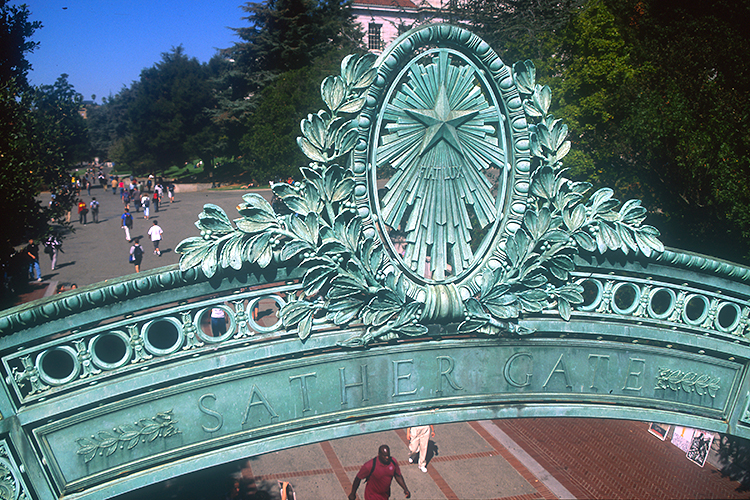Supporting students impacted by violence in the Middle East
"We understand that while these may seem to be distant events to some, they feel especially immediate and deeply impactful for many in our campus community," campus leaders write

May 12, 2021
Vice Chancellor for Student Affairs Stephen C. Sutton, Vice Chancellor for Equity and Inclusion Oscar Dubón, Vice Chancellor for Undergraduate Education Catherine P. Koshland and Lisa García Bedolla, vice provost for graduate studies and dean of the graduate division, sent the following message to the campus community on Wednesday:
As you’ve likely seen in recent media coverage, people in Jerusalem, Gaza and other residential areas have been subjected to a distressing increase in violence in recent days, with many fearing a continuing, expanding escalation in the days to come. This is heartbreaking.
We understand that while these may seem to be distant events to some, they feel especially immediate and deeply impactful for many in our campus community, particularly our students. We urge instructors to be flexible and show compassion for students impacted by the violence and unrest. You can learn more on the Academic Accommodations hub, including details on hardship accommodations. Email [email protected] if you need support requesting or supporting an accommodation.
As invaluable members of our UC Berkeley community, we want you to know that we are here to support you.
The physical and emotional safety and well-being of our students are of paramount importance to the University, and we have several campus resources should you feel the need for support:
- Mental Health Counseling: Counselors at University Health Services (UHS) at the Tang Center are available for urgent concerns: Counseling and Psychological Services website or 510-642-9494 (after-hours counseling line: 855-817-5667). Our mental health professionals are trained to provide support to individuals from a wide array of identities, including traditionally marginalized or disenfranchised groups. UHS offers culturally competent counselors for South Asian, Southwest Asian, and North African (SSWANA) Students, as well as the Muslim Mental Health Initiative (MMHI) counseling services, a collaboration between UHS and the Bay Area branch of the Khalil Center.
- Find Community: There are student organizations where you can find community and support, search on callink.berkeley.edu.
- Centers for Educational Justice and Community Engagement: These centers provide space, programs, and services for Berkeley’s diverse student communities, including the SSWANA Initiative.
- For information and support on reporting hate crimes or hate-motivated acts, visit stophate.berkeley.edu.
- The Office for the Prevention of Harassment and Discrimination (OPHD) responds to and resolves reports of protected category discrimination and harassment (including race, color, religion, ethnicity, and national origin) involving students, staff, faculty, and visitors. OPHD can help you understand your rights, options, and resources, including campus and community support, and offers informal and formal resolution pathways.
For faculty and staff needing support:
- Be Well at Work: Employee Assistance provides free confidential counseling andreferrals for our faculty, staff, visiting scholars, and postdocs. To schedule an appointment with an Employee Assistance counselor, please contact 510-643-7754 or email: [email protected].
We are committed to a truly inclusive culture where all can feel safe, respected, and welcome, as reflected in our campus Principles of Community. Students, please contact [email protected] if you need support navigating or finding resources. As always, please know that we are here for you during this challenging time, and others you may face during your Berkeley journey.